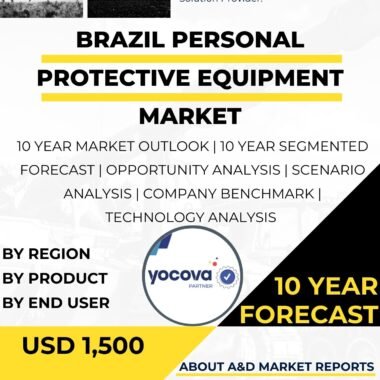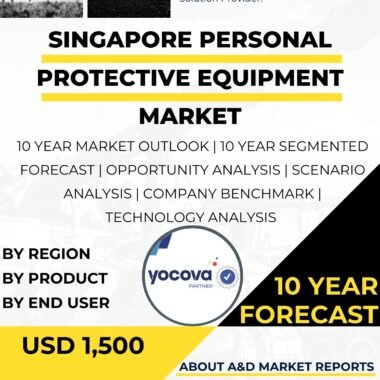Description
The Belgium personal protective equipment (PPE) market is a crucial segment within the country’s safety and security industry. PPE refers to specialized gear and equipment designed to protect individuals from hazards, injuries, and health risks in various environments. Belgium recognizes the importance of advanced PPE solutions in ensuring the safety and well-being of workers, first responders, and military personnel.
The primary driver for the Belgium PPE market is the need to provide effective protection against workplace hazards, including chemical, biological, radiological, and physical risks. PPE plays a vital role in industries such as manufacturing, construction, healthcare, and emergency response, where workers are exposed to various dangers. Belgium places a strong emphasis on workplace safety regulations and standards, driving the demand for high-quality PPE.
Belgium’s domestic industry plays a significant role in the development, production, and distribution of PPE. Belgian companies, such as Delta Plus Belgium and Sioen Industries, have expertise in manufacturing safety equipment and contribute to the country’s PPE market. These domestic capabilities foster innovation, create job opportunities, and contribute to the economic growth of the Belgium PPE market.
Collaborations with international partners and suppliers are also significant for the Belgium PPE market. Belgium often engages in partnerships with PPE manufacturers and distributors from other countries to access advanced technologies, expand product offerings, and ensure compliance with international safety standards. These collaborations enable Belgium to leverage global advancements in PPE solutions, ensuring the availability of a diverse range of protective equipment.
Furthermore, Belgium’s commitment to occupational safety and health influences the PPE market. The country has established regulatory frameworks and guidelines that require employers to provide appropriate PPE to their workers. Belgium also actively participates in European Union initiatives and standards for PPE, ensuring compatibility and harmonization with other member states.
The Belgium PPE market faces challenges such as technological advancements, customization, and cost-effectiveness. Technological advancements in PPE focus on improving comfort, usability, and protection levels. Belgium’s defense industry must stay at the forefront of innovation to provide state-of-the-art PPE solutions that meet evolving safety requirements.
Customization is another important consideration in the PPE market. Different industries and job roles have specific safety needs, and PPE should be tailored to address these unique requirements. Belgium’s PPE industry must offer a wide range of options and sizes to ensure proper fit and protection for diverse user groups.
Cost-effectiveness is an essential factor in the procurement and use of PPE. Belgium’s PPE market must strike a balance between providing high-quality protective equipment and ensuring affordability. Cost-efficient manufacturing processes, supply chain management, and pricing strategies are crucial for maintaining competitive prices without compromising safety standards.
In conclusion, the Belgium personal protective equipment market is a crucial segment within the country’s safety and security industry. Advanced PPE solutions provide critical protection against workplace hazards and contribute to the overall well-being of workers, first responders, and military personnel. Domestic capabilities, collaborations with international partners, and Belgium’s commitment to occupational safety and health drive the growth and development of the PPE market. As safety requirements evolve and technological advancements continue, the demand for innovative, customized, and cost-effective PPE solutions is expected to increase, fostering innovation, collaboration, and economic growth within the sector.




